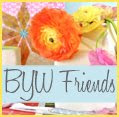
For this week's fiction review, I wanted to talk about Harper Lee's classic, To Kill A Mockingbird. I am assuming that most of you are familiar with the book, so this will be less a review and more of a reflection on my experiences with one of my favorite books.
I reread Mockingbird a few months ago and fell in love with it all over again. It was the first time I had read it since the 8th grade. I had seen the movie many times in between, but there was so much richness that the movie doesn't capture. I think the movie is phenomenal, but there is no way a two-hour film can include all the complexity of such a well-crafted novel. I loved remembering all of my favorite scenes again.
For a long time I've been saying that Mockingbird is one of my favorite books. Rereading it this fall has only reaffirmed that statement for me. I read it for the first time in 5th grade. I remember making a book report about it. I drew a tree with a big knot hole in it, and glued tin foil to it for the objects that Boo gives the children. I don't remember too many other details about my first experience with the book, but I remember being enchanted by it.
I read it again several years later for my 8th grade English class. I remember staying up late before the test on it talking to my mom about the book. After I finished studying for it, we just sat up, discussing the themes and characters in the book. I think that conversation helped me prepare for the test more than any studying I had done. Harper Lee's book made me think more than anything other book that I had read up until that point.
This time was different. I was of course moved by the important issues in the book, but this time, I was swept up in the characters and the language more so than before. I read it in a day and a half, and couldn't put it down, even though I knew exactly what was going to happen. I think I want to be one of those people who read To Kill A Mockingbird every year now. So don't be surprised it I start talking about it again this time next year.
What are your experiences with To Kill a Mockingbird? Who is your favorite character? Is there another book you loved long ago that you have returned to recently? If not, what book could you reread?











